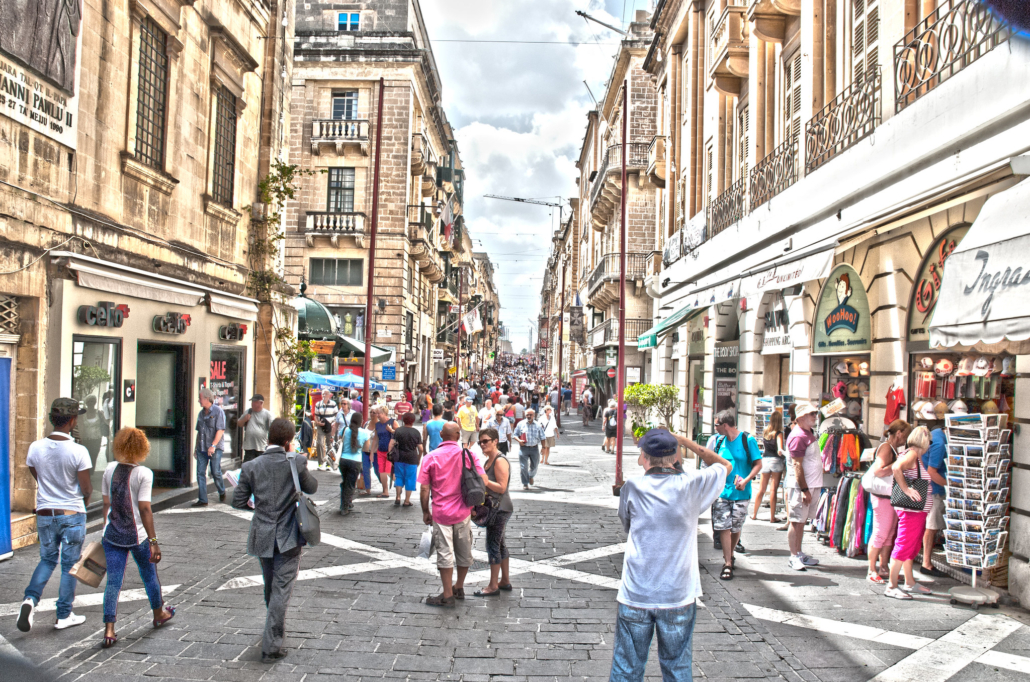Mood Over Matter: Mental Health in Malta
 Malta, the small island state at the heart of the Mediterranean Sea, faces an epidemic of undiagnosed mental health problems. As many as 120,000 of its citizens struggle with some form of mental illness. An article from Lovin Malta interviewed several Maltese individuals who shared their mental health struggles. Two interviewees described living with anxiety and stress, self-diagnosing as suffering from Post-Traumatic Stress Disorder (PTSD). Another two detailed their difficulties with neurodivergence—one with suspected Asperger’s syndrome and the other with inattentive ADHD—conditions that significantly impact mental well-being.
Malta, the small island state at the heart of the Mediterranean Sea, faces an epidemic of undiagnosed mental health problems. As many as 120,000 of its citizens struggle with some form of mental illness. An article from Lovin Malta interviewed several Maltese individuals who shared their mental health struggles. Two interviewees described living with anxiety and stress, self-diagnosing as suffering from Post-Traumatic Stress Disorder (PTSD). Another two detailed their difficulties with neurodivergence—one with suspected Asperger’s syndrome and the other with inattentive ADHD—conditions that significantly impact mental well-being.
The mental health issues in Malta are as varied as in any other part of the world. Maltese people face similar challenges to those in more developed countries, not due to a lack of humanity or civility, but because of limited access to essential services and an unstable economy. Despite these challenges, “0.7% of all deaths among Maltese residents in 2017 were deaths by suicide” and the country ranks 40th globally in terms of national happiness.
Factors Affecting Mental Health Decline
Over the past decade, Malta has experienced a significant influx of migrant workers from within the EU and beyond. This population increase places pressure on society, particularly on the healthcare system, straining those responsible for its operation. This cultural shift forces the host nation to adapt inclusively to reflect the values of all its inhabitants. While this progression is often seen positively, it can be overwhelming for some, especially those already in a fragile mental state. The result is a society where some embrace change, while others feel abandoned by their culture.
Ironically, the push towards a more egalitarian society has disproportionately affected the vulnerable. As women increasingly enter the workforce, traditional care roles are diminishing, leaving the elderly and infirm to rely more on state support.
Until recently, the Maltese government did not prioritize open discourse about mental health. A lack of political will, consensus and leadership hampered efforts to address the issue, according to Health Policy.
Need for Change: Positive Developments
Significant improvements have been made in Malta’s approach to mental health over the past decade, building on reforms from the early 1990s. In 2012, Malta appointed its first Mental Health Commissioner, marking a turning point, Health Policy reports. Increased pressure from public bodies and media figures has helped to destigmatize mental health issues, prompting more open discussions.
Previously, Malta had the highest average length of stay for inpatients with mental and behavioral disorders in the EU. In 2013, the average stay was 57 days, which decreased to around 40.5 days by 2019. The number of hospitalized patients per 100,000 population also dropped from 144 to 89.7 during the same period, according to Health Policy.
The health care system now favors community hostel care or independent living arrangements over prolonged hospital stays, allowing patients to maintain their autonomy and human identity.
NGO Involvement
Several organizations are spearheading initiatives to combat mental health issues in Malta. These include the Mental Health Association Malta (MHAM), the Malta Federation of Organizations Persons with Disability (MFOPD) and the Malta Health Network (MHN).
Founded in 1982, MHAM supports caregivers of the mentally ill, educates the public to reduce ignorance and stigma and advocates for legislative changes to benefit caregivers and support workers.
Founded in 1970, MFOPD supports 41 member organizations and works on initiatives to reduce stigma, enhance societal understanding and improve integration and services for persons with disabilities. It advocates for the rights and needs of persons with disabilities, engages in lobbying efforts, and participates in relevant government structures and European events.
Established in 2007, MHN is an organization that focuses on promoting health-related interests for patients and the community in Malta. It collaborates with governmental, non-governmental, and not-for-profit organizations as well as patient representative groups to enhance health services and patient advocacy.
In February 2024, the organization launched a “To be seen and to be heard” (Arani u Ismagħni) campaign seeking to empower patients and equip them with skills of self-management and professional communication.
Future Directions
While Malta has made observable progress, the WHO is keen to draw attention to the work still to be done. Reducing poverty from its current rate of 9.2% to zero is crucial, but, according to WHO, so, too, is improving staff communication with patients and spreading information about mental health issues.
Financial hardship and mental distress are interconnected. Studies suggest both poverty and mental health issues are still stigmatized, with some believing mental health is a middle-class issue. Research in Glasgow, however, indicates higher rates of mental health issues in deprived areas, though suicide rates are higher in affluent areas. This disparity highlights structural differences in access to resources, with the affluent having better access to mental health services, while the impoverished often face desperation and neglect.
It is challenges such as the above that an organization like MHA seeks to overcome; by combating the stigma that mentally ill people and their caregivers face in Malta and ensuring mental health services are both well-staffed and well-funded.
In September 2017, the MFOPD initiated a campaign comprising a series of educational modules that sought to assist those living with intellectual disabilities to engage in an independent lifestyle. The project’s mission statement was “Enhancing Social and Economic Inclusion Through Independent Living” and it reached 360 people by the project’s end.
– Thomas Johnston
Thomas is based in Dungannon, County Tyrone, Northern Ireland and focuses on Good News and Global Health for The Borgen Project.
